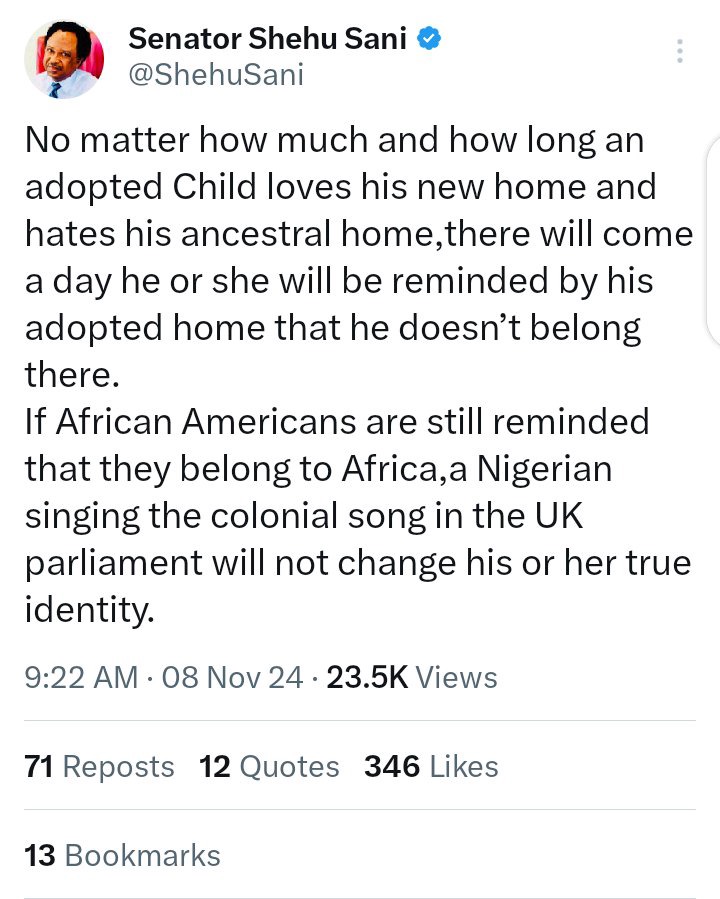
According to Dabiri-Erewa, NIDCOM made attempts to engage Badenoch, but these attempts were met with silence. Dabiri-Erewa explained that the commission remains open to collaborating with any individual who identifies with their Nigerian heritage. However, she emphasized that the decision to embrace Nigerian identity lies solely with the individual, and such acknowledgment cannot be forced.
In his response, Senator Shehu Sani underscored the enduring nature of one’s heritage, regardless of how fully one may immerse in another culture. He pointed out that identity and belonging often transcend geographical boundaries, even when individuals may consciously choose to disassociate themselves from their heritage. For Sani, the idea of rejecting one’s roots is, ultimately, a temporary endeavor that cannot fully erase historical and cultural ties.
Drawing on broader examples, Sani referenced African-Americans who, despite generations of separation from Africa, are still reminded of their ancestral connections. He suggested that these deep-seated bonds cannot be fully discarded, and attempts to assimilate entirely into a new culture often face challenges and reminders of origin.
He argued that individuals like Badenoch, who are of Nigerian descent but now part of British politics, may one day be reminded of the cultural heritage they chose to downplay. He expressed the view that even if a Nigerian in the UK sings “the colonial song,” such an act will not entirely alter their original identity.
According to him, “No matter how much and how long an adopted child loves his new home and hates his ancestral home, there will come a day he or she will be reminded by his adopted home that he doesn’t belong there”.CONTINUE FULL READING>>>>>









